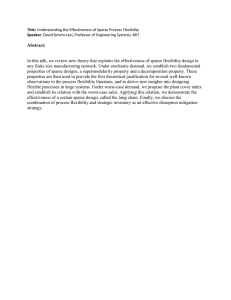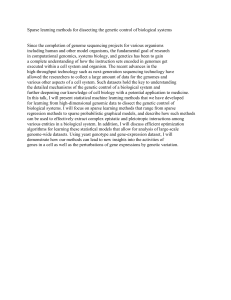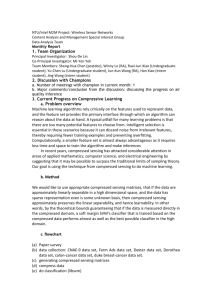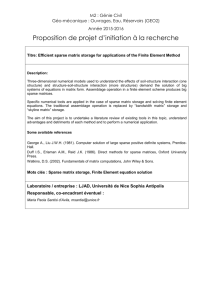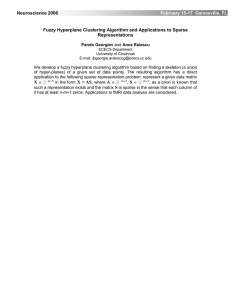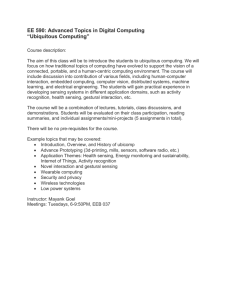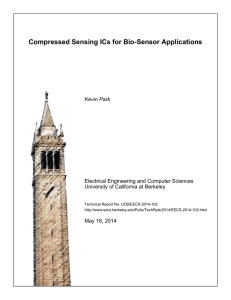Department of Electrical Engineering University of Southern
advertisement
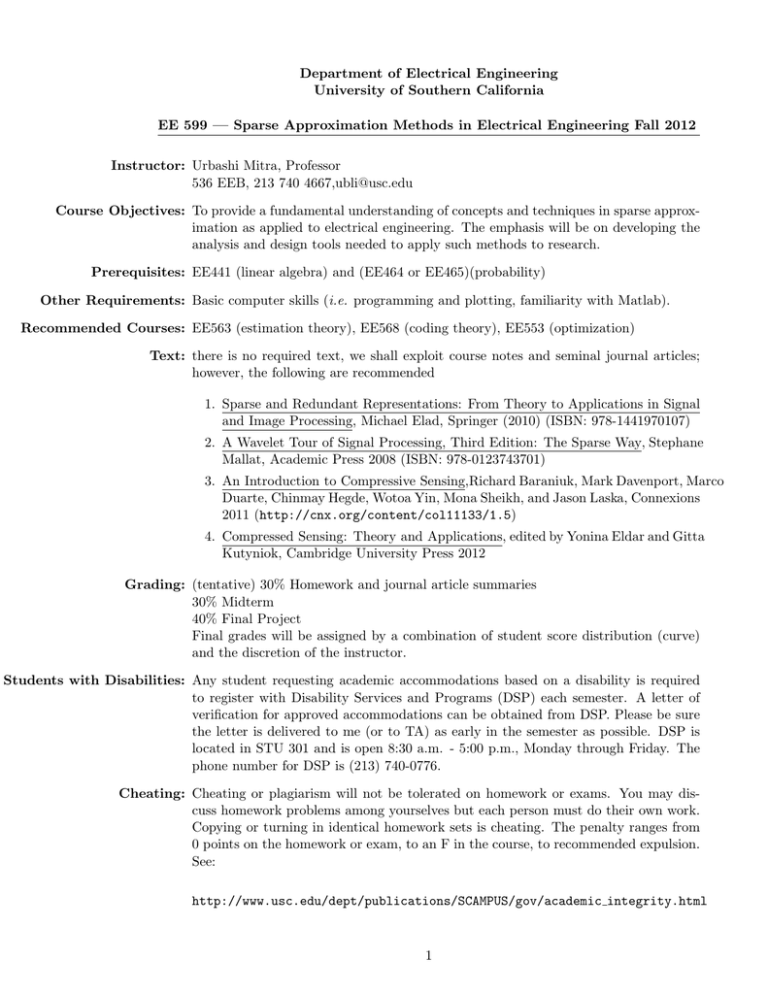
Department of Electrical Engineering University of Southern California EE 599 — Sparse Approximation Methods in Electrical Engineering Fall 2012 Instructor: Urbashi Mitra, Professor 536 EEB, 213 740 4667,ubli@usc.edu Course Objectives: To provide a fundamental understanding of concepts and techniques in sparse approximation as applied to electrical engineering. The emphasis will be on developing the analysis and design tools needed to apply such methods to research. Prerequisites: EE441 (linear algebra) and (EE464 or EE465)(probability) Other Requirements: Basic computer skills (i.e. programming and plotting, familiarity with Matlab). Recommended Courses: EE563 (estimation theory), EE568 (coding theory), EE553 (optimization) Text: there is no required text, we shall exploit course notes and seminal journal articles; however, the following are recommended 1. Sparse and Redundant Representations: From Theory to Applications in Signal and Image Processing, Michael Elad, Springer (2010) (ISBN: 978-1441970107) 2. A Wavelet Tour of Signal Processing, Third Edition: The Sparse Way, Stephane Mallat, Academic Press 2008 (ISBN: 978-0123743701) 3. An Introduction to Compressive Sensing,Richard Baraniuk, Mark Davenport, Marco Duarte, Chinmay Hegde, Wotoa Yin, Mona Sheikh, and Jason Laska, Connexions 2011 (http://cnx.org/content/col11133/1.5) 4. Compressed Sensing: Theory and Applications, edited by Yonina Eldar and Gitta Kutyniok, Cambridge University Press 2012 Grading: (tentative) 30% Homework and journal article summaries 30% Midterm 40% Final Project Final grades will be assigned by a combination of student score distribution (curve) and the discretion of the instructor. Students with Disabilities: Any student requesting academic accommodations based on a disability is required to register with Disability Services and Programs (DSP) each semester. A letter of verification for approved accommodations can be obtained from DSP. Please be sure the letter is delivered to me (or to TA) as early in the semester as possible. DSP is located in STU 301 and is open 8:30 a.m. - 5:00 p.m., Monday through Friday. The phone number for DSP is (213) 740-0776. Cheating: Cheating or plagiarism will not be tolerated on homework or exams. You may discuss homework problems among yourselves but each person must do their own work. Copying or turning in identical homework sets is cheating. The penalty ranges from 0 points on the homework or exam, to an F in the course, to recommended expulsion. See: http://www.usc.edu/dept/publications/SCAMPUS/gov/academic integrity.html 1 Outline: (each item roughly corresponds to one week’s material) 1. Vector spaces 2. Estimation and detection 3. Large Deviations theory 4. Compressible and sparse signals 5. l1 minimization 6. Probabilistic approach to compressed sensing 7. Deterministic approach to compressed sensing 8. Sensing matrices 9. Sparse Approximation in noise 10. Optimality of sparse approximation/compressed sensing 11. Low-rank matrix recovery 12. Nuclear-norm minimization 13. Exploiting structure 14. Applications 15. Final Project Presentations 2
